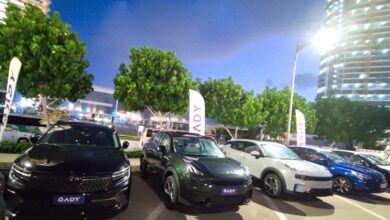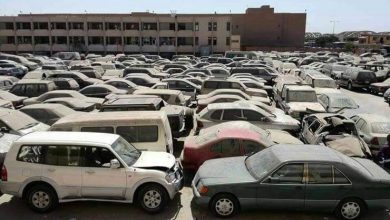Brilliance Egypt considers transitioning to local manufacturing: general manager
Khaled Saad, the general manager of Brilliance Egypt, revealed that the company is currently considering local manufacturing instead of importing.
He added that the automobile sector is facing many obstacles that threaten its presence, especially when the long-awaited manufacturing strategy does not take these obstacles into consideration to remove them.
What are the future expansions of Brilliance?
We are mostly occupied with the idea of local manufacturing of Brilliance in Egypt—something to which we have given lots of time and attention, because of all that is happening in the local market. We are currently studying moving the Jinbei automobile factory from China to Egypt. We await a clearer vision through the automobile manufacturing strategy to begin the work.
The government must cooperate to help make Egypt a hub for car manufacturing and exporting.
What is the size of the group’s current investments? What is your target for next year?
Investments are studied every now and then, based on the changes in the local market. Investments of next year may not meet our target, but they definitely will be better than this year, given that Brilliance cars may be manufactured in Egypt.
How much was Brilliance’s profit last year?
I believe that the answer is no secret, because there were no profits. There were only massive losses. I believe this is also the case with every other company in the sector.
Is the capital market still attractive as an effective financing channel?
The market is facing lots of difficulties at the present moment, and I believe all automobile companies are considering turning from importers to manufacturers or local assemblers as is the case with Brilliance.
I also believe there are lots of available opportunities, but the financing channels have become very difficult, given the required conditions and the exaggerated interests of loans. I believe any expansions in the future are considered very carefully and with precise studies.
What is the company’s vision to maintain good working capital in case of fluctuations in operating costs?
I believe that working capital is the main concern of anyone in the field. Working capital has been greatly affected by the flotation of the Egyptian pound and the increase in operating costs without an increase in income or profits to cover the difference. It will be years before we coverthe losses of the past period.
What are the main current challenges in the sector?
The automobile sector is one of the most important national income sources after the Suez Canal. It brings in income through customs, taxes on cars and spare parts, workers’ salaries and wages, in addition to feeder industries, such as the insurance sector and maintenance workshops. The automobile sector, however, is still not viewed as of great importance.
Several decision were made over the past period with no consideration of the validity of these decisions. For instance, there is no committee representing the sector to help solve its issues and discuss the decisions made by the state regarding the automobile sector. Cars are not considered main goods as well.
A decision was made by the Central Bank of Egypt (CBE) regarding some basic goods and the strategy that is adopted when it comes to thosethe bank helps with the provision of foreign currency.
In addition, the recent tax and customs decision have greatly contributed to delaying sales and formed an additional challenge.
Is the car manufacturing strategy capable of eliminating these obstacles?
This strategy is one of the main challenges facing the sector and was discussed in difficult circumstances. It has some flaws, which caused it to be rejected by some factories and accepted by others; however, it sure was filled with new burdens. So it is still under study.
How do you see foreign investment opportunities in the sector? What do you propose for the Suez Canal Economic Zone (SCZone)?
I believe foreign investment in Egypt is facing several issues, including the absence of a fixed value for foreign currencies. The value is different in banks from the parallel market. However, after flotation, this difference diminised. Foreign investors are facing problems in converting the value of their profits.
The larger problem for attracting investments is that businesspeople carry out studies on the markets they aim to invest in before pumping new investments, and the car sales have been collapsing since 2016. To that, I believe investors will be unable to tell the success of any investment project in Egypt at the moment.
Regarding the Suez Canal, the presence of a permanent intermediary will lead to many restrictions on investors, causing them to leave, so I believe an intermediary is unneeded.
How did you deal with the fluctuations that plagued the sector last year? How do you see the future?
Last year, several decisions were made that caused the sector to slow down. I believe our company, like many others, has been able to very strongly stand in the face of these challenges. We were able to overcome the hard times despite the massive losses, whether in terms of the value of the US dollar or even its unavailability altogether.
As for our view for the automobile sector, I believe if we pay more attention to it, it will be revived by the end of 2018 and will become a very strong sector in the market once again.





